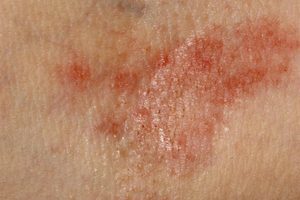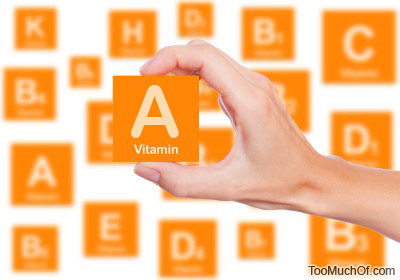Vitamin A – Retinol is one of the hero ingredients for the skin and skin health. It has been proven in many studies to help with Acne, dermatitis, anti-aging and many other skin conditions. Plus a Vitamin A deficient skin is prone to acne, to pigmentation marks, to wrinkles, aging and worse still, to developing non-melanomatour skin cancers. Vitamin A rich skin is smoother, even colored, radiant and does not develop skin cancers. The confusion is which type of Retinol is best and in what format. Vitamin A comes in several formats, which will affect its stability, reaction on the skin and results. Vitamin A can affect the DNA of the skin cells and helps make skin cells to function normally and healthier. Retinol an alcohol form of Vitamin A which when taken up by the skin cells and is mainly converted into Retinyl esters but some of it will go through a conversion process that eventuates turns into Retinoic Acid that has the most effect on the skin.
The conversion process of the Vitamin A, Retinol is first converted in the skin layers is into Retinyl Palmitate in the cell and is then slowly metabolized in the cell to turn back into Retinol to then be converted into Retinaldehyde and final conversion is Retinoic Acid. Retinoinc Acid is the Vitamin A which has the best affect on skin DNA. The only catch with Vitamin A is that the skin cells receptors must be active to receive the Retinol before the conversion can take place. The more vitamin A receptors that are turned on the more Vitamin A the skin cells can take on and convert into Retinoic Acid. If your receptors are not turn on and you apply too much Vitamin A skincare products for the number of active receptors you will have a adverse reaction and become highly sensitive to the product and many other products. Some skincare products try to reduce the reaction by using a less reactive and effective forms of vitamin A but they will not give the results that you are wanting.
How to turn your receptors back on and get the skin cells accept Retinol without a bad reaction.
Our receptors are depleted due to sun exposure and age and diet. The smartest way to reigniting the skin cells receptors is to start with a low level of Retinol (less than 0.5%) on alternate days and then slowly builds up to daily application. It takes time for your skin to not only recognize

the Retinol but also turn back on receptors and it can take up to 6 months. I recommend that when starting to use any retinol skincare products that you should use graduated concentrations of vitamin A in a step-up system to minimize the chance of any Vitamin A reaction. The highest concentration you should use is 1% to ensure that you do not become a toxin to your skin and body. If you have oversupplied your skin with vitamin A before the receptors are turn on, your skin will become inflame and very sensitive. The skin will become red rough and sore to touch. If this happens stop using your Vitamin A cream and avoid sunlight and allow the skin to heal. The best treatment is a Blue LED light for 20mins everyday to help calm the skin and plus moisturize the skin and apply a hydrating mask. Once your skin has return to normal you can start using a low dose encapsulated Vitamin A cream but slowly. It is recommended that you start at a rate of once every third night to allow for the skin to reignite the receptors. Once your skin can tolerate this first level, then are you can increase the frequency of use to every second day and then every day. This will take about 6 months (2 months on each level) It is not until your skin can handle every day application can you think about increasing your Vitamin A level from 0.5% up to 1%. Again introduce the high dose slowly to avoid a Retinol irritation reaction.
The Bad Vitamin A and why to avoid it at all cost.
If the body converts Retinol to Retinoic Acid then why not just use Retinoic Acid. Retinoic Acid is normally only available on a prescription for a very good reason. It is the use for the short term healing of serve skin conditions like Grade VI – Severe Cystic Acne and Dermatitis. The reason for it to be only short term is that it can become very toxic to the body the side affects to your skin – thinning of the skin and acts a toxin to the cell membranes It also has affects on the body which can cause bone pain and liver damage and increased pressure on the brain. If you become pregent when using the Prescription based Retinoic Acid it can have devastating affects on the unborn child and reproduction system. Retinoic Acid prescription are know as Retin-A, Avita, Renova, Atralin, Altinac, Rocccutane, Accutane, Amnesteem, Claravis, Sotret. Unless you are under a very good Dermatologist who is constantly monitoring your skin and your body to ensure no adverse side affects are occurring. Retinoic Acid is good for a very short time to the help with fighting Extreme Acne or other extreme skin condition and not for fighting wrinkles. There is so many very good anti-aging and acne skincare without the dangers that will give you great results if not better results than using Retinoic Acid. Also note if you are using retinoic acid creams you will become very sun sensitive, easy to burn leading to quicker signs of aging and skin cancers. When on Retinoic Acid you will not be able to have many professional treatments including waxing, micro-dermabrasions, chemical peels , cosmetic tattooing, Laser, IPL as your skin is easily taunt and very thin.
Read: Dermatologist v Esthetician
Good Vitamin A to use to have healthy glowing skin.
Retinol product can you use for to reduce signs of aging, mild acne, and other skin conditions. Understanding that Retinoic Acid is only for chronic condition and used under the supervision of a highly trained Dermatologist then the question is what is a good vitamin A that you can use. Most vitamin A products available from your supermarkets and large department stores will have products that have very low levels of Retinol and in the form of Retinyl palmitate as it never cause a retinoid reaction. This will not turn on your receptors and thus it will do little to boost the skin or to improve the skin. Retinol is quite an irritant ingredient and unstable when exposure to oxygen, light, or even other ingredients like Vitamin C. If Vitamin A and C are in the same formula they can render each other infective unless they are both encapsulated. The best form of Retinol is one that is encapsulated in an oil base ingredient (olive oil, coconut oil, avocado oil and their derivatives) If a skincare uses this kind of encapsulating technology it is more effective than a product that uses high level of retinol that is not encapsulated. The added benefit when the Retinol is encapsulated it has been found that the skin has a less irritation reaction to it. Also the encapsulation allows the delivery of retinol gradually, in a sustained and long lasting releasing system enabling the Vitamin A to be delivered deeper into the skin to the skin cells that will most benefit from the Vitamin A.
Read: Encapsulated of Skincare Active Ingredients
Last Word on Vitamin A Skincare
Retinol is one of the hero ingredients for the skin as it helps skin cells create better, healthier skin cells, provides antioxidant support, and enhance skin’s cell structure. Look for a skincare that highlights the type of Vitamin A (preferably Retinol), the percentage (0.5 to 1%) and if it is encapsulated and in a airless or pump action container. Remember to use at night and slowly introduce it to the skin to enable the skin cells receptors to turn on and ensure that you do not have a bad reaction. Always use zinc base sunscreen when using Vitamin A skincare.
Read: Why do companies still use jars at the risk of your skin health
♠♣♥♦♠♣♥♦♠♣♥♦♠♣♥♦♠♣♥♦♠♣♥♦♠♣♥♦♠♣♥♦♠♣♥♦♠♣♥♦♠♣♥♦♠♣♥♦♠♣♥♦♠♣♥♦♠♣♥♦
QUESTION ABOUT YOUR SKIN? Make an Appointment Today or send me an email to debra@debraspence.com
PERMISSION TO REPRINT: You may use this article in your print, blog, magazine or electronic newsletter. But in order to do so, you must include the following paragraph “Information courtesy from Debra Spence – Answering your skin problems with Science and Nature. Debra Spence is a Cosmetic Chemist and Skin Specialist who provides skincare and treatment tips, product recommendations and reviews to professionals and patients. www.debraspence.com”
Content Copyright © 2016, Debra Spence
All products, material and information provided within this Website are for educational and informational purposes only. No medical claims are implied in the information given and it is not intended to diagnose, treat, cure or prevent any illness or disease. Any reference to health benefits cannot be taken as a replacement for medical advice or prescription medication or seen as a diagnosis for a specific condition. It is not intended to be a substitute for the advice or treatment of your medical professional. The information provided by in this website is believed to be accurate based on the best judgment of the author but the reader is responsible for consulting with your own medical professional / skin therapist. In no way is any of the content on this website to be construed as medical advice or instruction.
♠♣♥♦♠♣♥♦♠♣♥♦♠♣♥♦♠♣♥♦♠♣♥♦♠♣♥♦♠♣♥♦♠♣♥♦♠♣♥♦♠♣♥♦♠♣♥♦♠♣♥♦♠♣♥♦♠♣♥♦








